How to Store Bird Seed and Keep It Fresh
Updated: Jan. 16, 2024
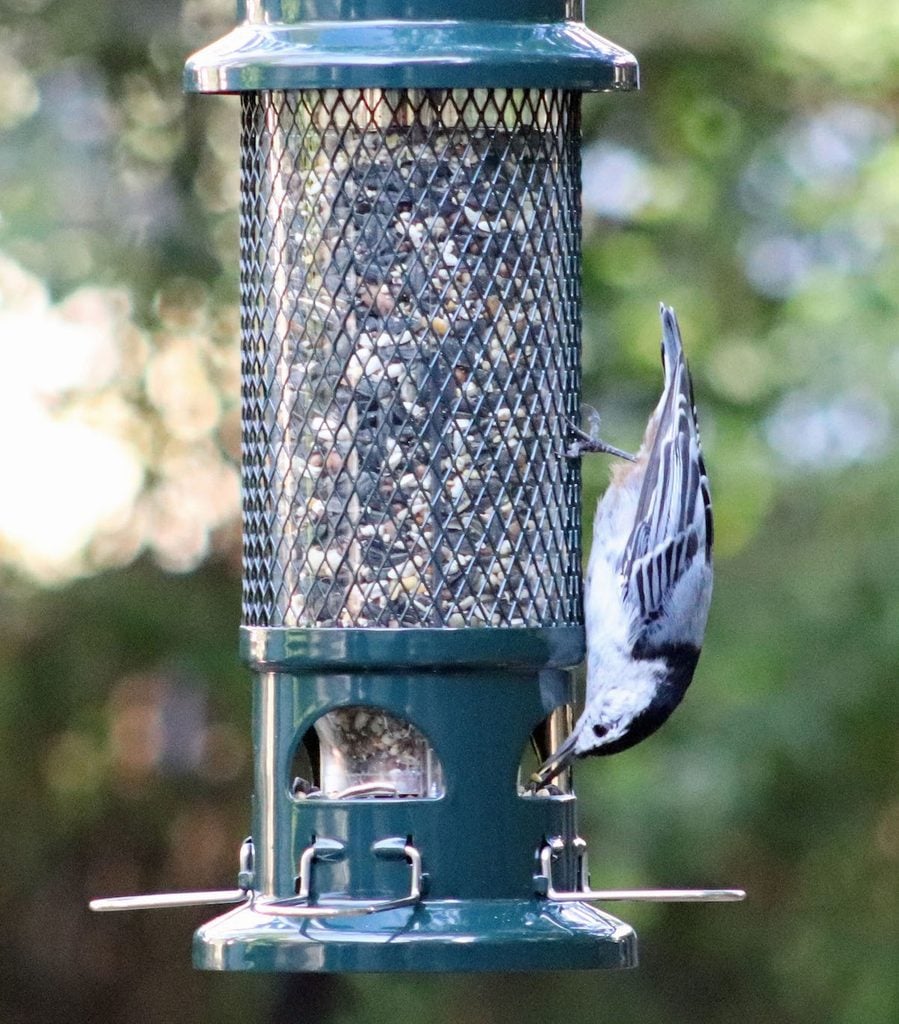
Storing bulk bird seed the right way keeps birds healthy and saves you money. Learn how to store bird seed properly and keep it fresh.
The more birds that find and return to your feeders, the more often you need to fill them and maintain them. To keep up with demand, it makes sense to buy bird seed in bulk! Stocking up during a sale saves you money, plus it cuts down your trips to the store, which saves you time. It’s a win for you and the birds, but it’s important to keep excess food fresh, protect it from mold and free of rodent and insect infestations. Luckily, it’s easy to keep the birds in your backyard happy and healthy with these bird feeding tips. Here’s what you need to know about how to store bird seed.
Check out the 10 types of bird feeders you need in your yard.
Inspect Seed Bags for Dust
It begins at the store. When you’re shopping for seeds, avoid picking up dusty bags. The food has likely been sitting there for a while, and it could be close to expiring.
Go for Seeds With Hulls
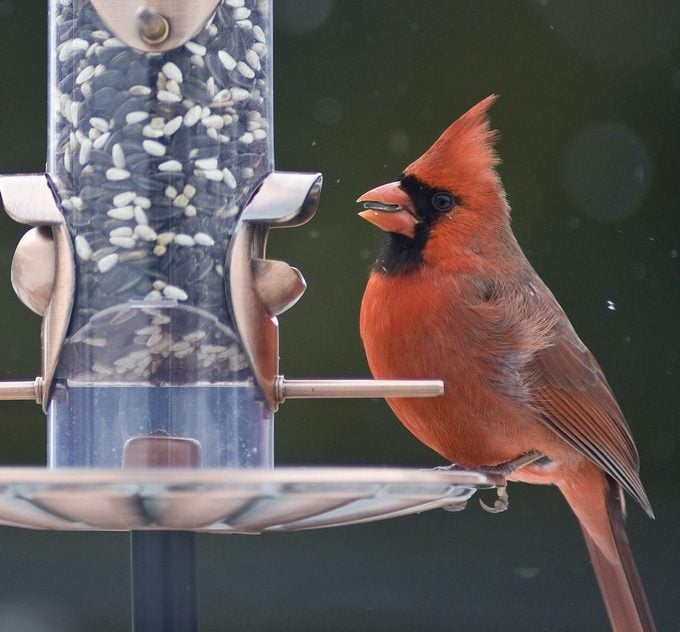
Buy seeds with hulls, like black oil sunflower seeds. They stay fresh longer, especially in the heat of summer. Birds don’t mind the extra work!
Keep It Cool and Dark
Store bird seed in a cool, dark place. “Then it will be good for a long time,” says Emma Greig, project leader at the Cornell Lab of Ornithology’s Project FeederWatch. When it’s hot out, “keep bird food in the basement, or buy less quantity in the summer,” she says.
Learn how to make homemade bird seed with tips for DIY seed mixes.
Store Bird Seed in an Airtight Container
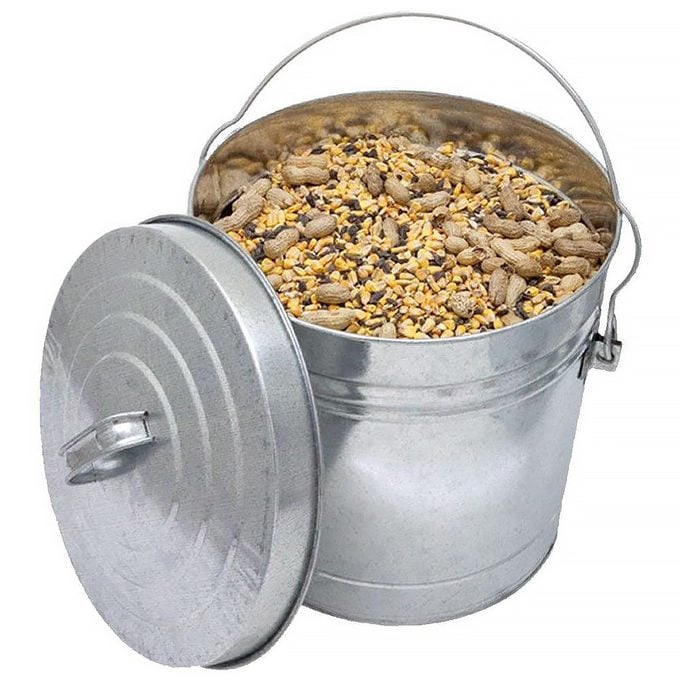
The seed you use is only as good as your storage method. Let’s face it—feeding birds is an investment. That’s why it’s worth spending some time and effort to come up with a good seed storage solution. Ideally, you’ll store your seeds in a sealed container, away from mice, squirrels and other critters. This will keep your bird feeding station tidy and birds healthy.
An airtight container is critical to keep out moths and other insects. Once your batch is infested, the whole lot has got to go. Try a large plastic tub or a metal garbage can with a tight lid. And don’t worry about any air captured in the container. Emma says it is not a problem.
“I store bags of bird seed in small galvanized garbage cans with handles that secure the lid for a tight fit.” says Birds & Blooms reader Pat Northington of Austin, Texas.
Is hot pepper bird seed safe for birds?
Freeze Seed and Suet for Longer Life
Emma estimates that seeds will keep for up to one year if you freeze them. Either toss the whole bag into a chest freezer or separate seeds into smaller portions and seal in freezer-safe storage bags.
Store your excess suet cakes in the freezer for up to a year. Avoid feeding suet during the summer months—it spoils quickly in hot weather.
Discover 9 foods you should never feed to birds.
Clean Bird Feeders Often
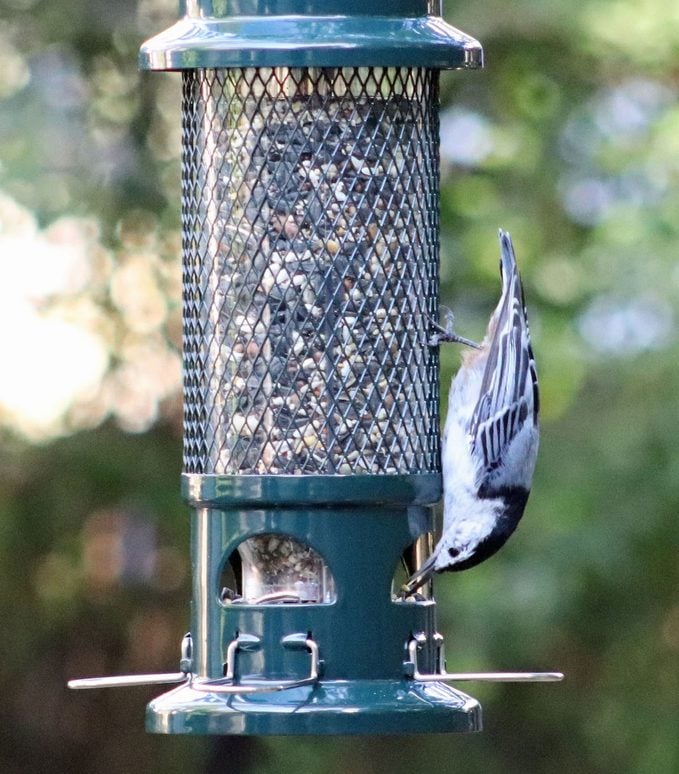
One way to keep the seeds in your feeders from spoiling is by washing the feeders frequently with soap and water. A good rule of thumb is to clean your feeders at least once with every new season. Hummingbird feeders should be cleaned more often, every week during the height of the season. All you need is a little bit of vinegar or bleach and a stiff brush to give them a good cleaning. Scrub with a mixture of 9 parts water to 1 part bleach. Rinse well and let dry before filling them with fresh food.
Learn how to clean a bird bath.
No More Moldy Thistle Seed
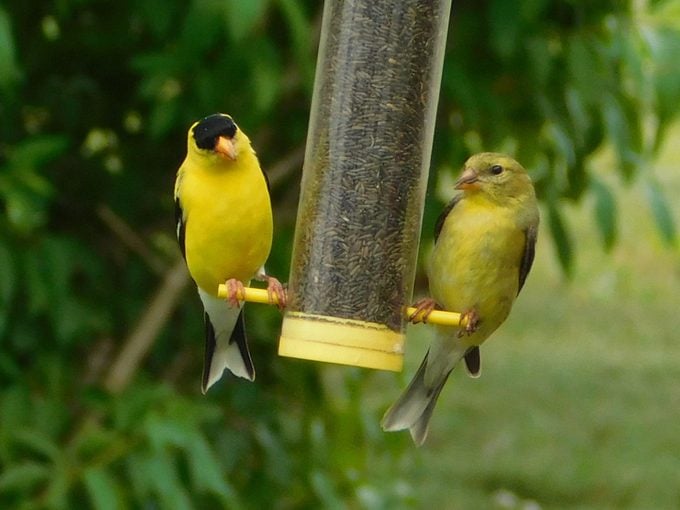
Nyjer thistle seed can get moldy fast, especially in a new feeder that birds haven’t found yet. An easy solution? Fill your finch feeder only halfway and clean it out regularly.
Psst—these are the three types of seeds and feeders birds love best.
Try a Sniff Test
Before you refill feeders, give the food a quick sniff. Spoiled seed smells a little off, and if the scent is unappealing to you, it’s almost guaranteed the birds will look for their next meal elsewhere.
Do safflower seeds deter squirrels?
Boil Sugar Water
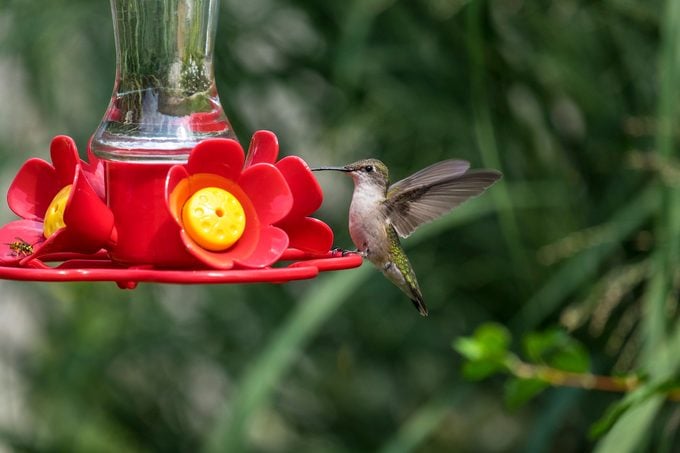
To extend the life of sugar water, boil it first. Store a batch in the refrigerator to keep it cool, and change the mix in your hummingbird feeders every couple of days.
Frequent Your Feeders
Take note of what’s happening at your feeders. If seed levels in one feeder are declining while another remains full, try refreshing the untouched seed. It may have spoiled—or the birds that ate the seed may have moved on.
Here’s what you need to know about wild bird diseases.
Add More Bird Feeders
Crowded spaces can quickly lead to messy surroundings. This is true in many aspects of life, and it’s also true for birds. If you have a single bird feeder constantly being mobbed by visitors, then maybe it’s time to put out another one. This will instantly alleviate all the traffic going to a single source, and it’ll help keep your feeding space cleaner longer.
Try these no-mess bird feeders to keep your yard clean.
Refill Bird Feeders After Rain or Snow
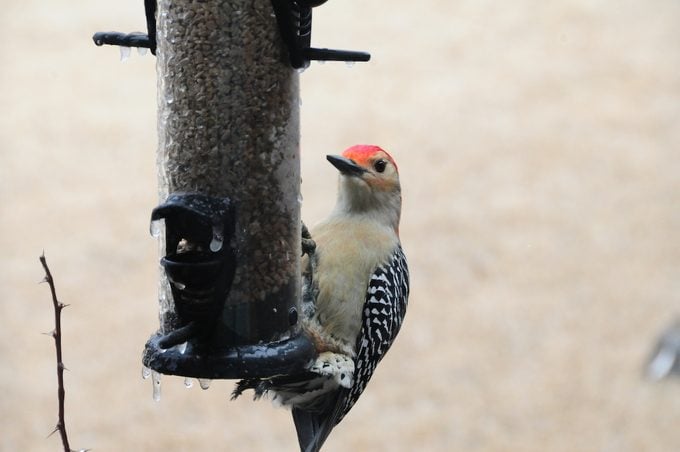
No one likes to eat soggy food, and birds, too, will avoid food that has been out in the rain. Even when it dries, the food is usually moldy, a potential hazard. If you can, set feeders up under a protected area, away from the rain and damp conditions. If this isn’t an option, then be sure to clean feeders out after a storm or shower.
We found the best sunflower seed bird feeders for your yard.
Weevils in Bird Seed
“Even though I store bird seed in the original bag in a covered metal garbage pail, it is infested with small black spiders. How do I prevent this?” asks James Castner of Batavia, Illinois.
Birding experts Kenn and Kimberly Kaufman say, “Your bugs sound like grain weevils (Sitophilus granarius), common pests of grains found in bird seed. The best way to keep out these invaders is to store bird seed in metal cans with lids. Since you’re already doing that, there’s a good chance the weevils were in your seed when you bought it. We’re often asked if it’s OK to feed bug-infested seeds to birds, and the answer is no. While many birds would certainly eat them, insects in bird seed usually indicate that the seeds are old and potentially moldy. It’s best to buy fresh seed from a reputable bird feeding store, and don’t hesitate to ask about the quality of the seed before you buy.”
Next, discover the best cardinal bird feeders and seed.
